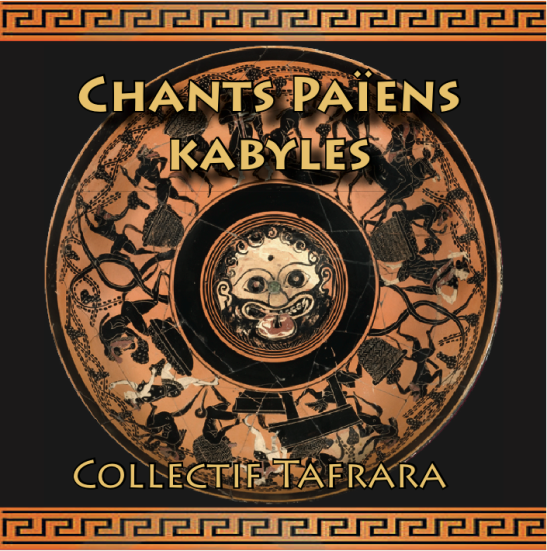 Kabylian Pagan Songs
Kabylian Pagan Songs
By
Where are the gods who filled the world? Have they fled from this world of madness or are they waiting to be called, to be invoked, to be honored for coming back?
If they are immortal, they are simply absent, no doubt, they have taken a few centuries of vacation and have left their place to the jealous and unique god.
What if they could hear us? And if we addressed them with the most beautiful of our words, and if through their names, attributes, and domains we look with another eye to this Nature as at the best we despise, at worst we violate.
If in these songs we find the breath, the soul, the spirit of a rustling nature of a divine felicity …
To enclose these Kabyle pagan songs inspired by the Homeric hymns to the deities of the Mediterranean pantheon, is to rediscover the spirit of the ancient Mediterranean. The ancient Mediterranean fund, if we want to scrutinize it carefully, shows that Kabyles and Berbers in general share with Greek and Roman antiquity as much, if not more, than so-called European cultures.
When we read Herodotus, we learn that the goddess Athena was born in Libya (ancient name of North Africa), that Poseidon is a Libyan god adopted by the Greeks, that the oasis of Ammon (now Siwa) houses an oracle of Zeus as important as that of Dodona in mainland Greece. Herodotus wrote in the 5th century BC.
When North Africa became Roman, between the 1st century BC and the 1st century after, Africa became a horned goddess represented on mosaics that can still be seen today in the Louvre, Bardo to Tunis and Algiers. The African deities were adopted in the religious cults of the Roman Empire, so the Roman and Greek gods were widely honored by the ancient Numidians.
Ten centuries of Roman Greek culture did not evaporate at a stroke with the arrival of Islam. In the tales, the Berber myths collected in the nineteenth century by the new French colonizers, we find these elements of a polytheist religion that goes back thousands of years. Most Berber tales and legends have been marked by the so-called “Arab-Muslim” culture, but some have kept undeniable references to the polytheist Mediterranean funds. The myth of Anzar and what remains of it in the popular language to designate the rainbow is an undeniable witness.
Of course, this polytheistic tradition – of which we could still feel the liveliness when our grandmothers saluted a tree or a stone because they were “inhabited” by the Guardians – Is no longer a matter of course. It is to be reinvented, recreated, and reconstructed in the literary light of ancient Greek and Latin texts.
These pagan chants are not meant to promote a return to polytheistic cults, but to make us hear other voices that go back to the depths of the ages and whose echo still resounds in all the nature that surrounds us.
So an hymn to nature, and to its powers, which the present religious “rationalism” has buried under the sign of anathema.
What we are proposing here is a walk in the cross-roads that will lead the Kabyles to humanity, to the humanities.
Marguerite Yourcenar considered Greek mythology to be a first step towards a universal language. All wars could be summed up in what Homer said of the Trojan war, the journey of Ulysses could symbolize the quest inherent to the whole human condition.
To sing these forgotten gods is to sing the memory of an ancient Mediterranean that the Kabyles must find again so that they will never be lost in a sea that is as much theirs as for the Romans, OUR SEA TO ALL: Mare Nostrum
Listen to excerpts from pagan Kabyle songs, pending official release on ☆ tisnalalit.com



Leave a Reply